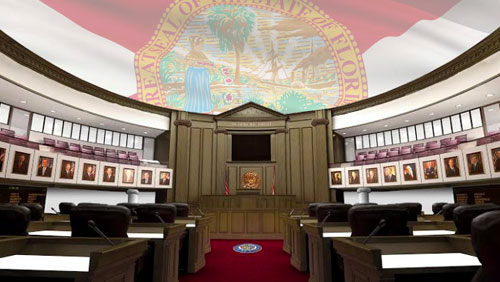Florida House and Senate leaders are set to lay down their respective versions of a gambling bill next week, with analysts expecting a possible compromise to move the measure forward.
 The Miami Herald reported that while there’s no assurance that the bills will be resolved in one sitting, the public may take comfort with the fact that legislators are taking seriously the issue to shore up their gaming revenues.
The Miami Herald reported that while there’s no assurance that the bills will be resolved in one sitting, the public may take comfort with the fact that legislators are taking seriously the issue to shore up their gaming revenues.
Republican Sen. Bill Galvano, who sponsored a gambling overhaul bill and the Florida senate’s lead negotiator on gaming issues, said that members of the upper and lower chambers of congress are seriously looking forward to come up with a win-win measure.
“We need to get this together and resolve these things going forward or we’ll have no revenue and there’ll be gaming wherever someone has made a good argument that it should exist,” he said.
But for now, the Senate is set to tee their version of a gambling measure up for a vote on Thursday.
On Wednesday, the Senate panel approved a measure seeking to award Miami-Dade and Broward counties an additional slot casino apiece, while horse and dog tracks in at least eight counties would get new slot parlors.
If approved, the Senate plan would amount to about $525 million in first-year revenues, and annual revenues after that could amount to about $450 million, Galvano said.
The Senate’s gambling version differs from the House’s version, which would reenact the current gaming compact that gives the tribe the exclusive right to slot machines outside of Miami-Dade and Broward and blackjack at their casinos in exchange for $3 billion in payments to the state over seven years.
Both chambers also differ on the issue of pari-mutuels offering slot machines.
Galvano’s measure contains a provision to allow certain pari-mutuels to offer slot machines while the House wants to ban pari-mutuels from adding slot machines in the eight counties where voters have authorized the games.
Central to the debate are the Seminole Tribes, which has warned House and Senate leaders that both gambling bills demand too much money for too little in return for them to support.